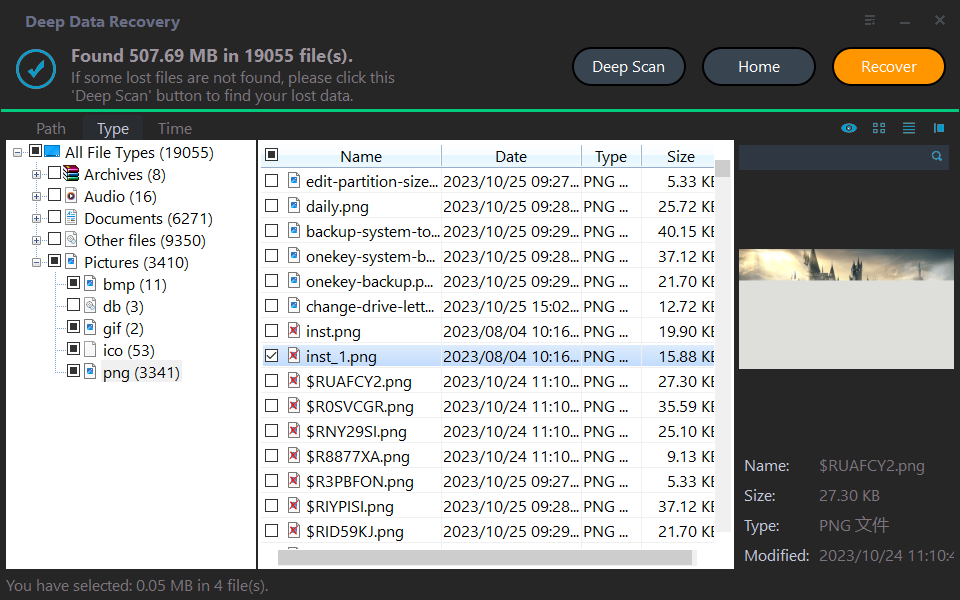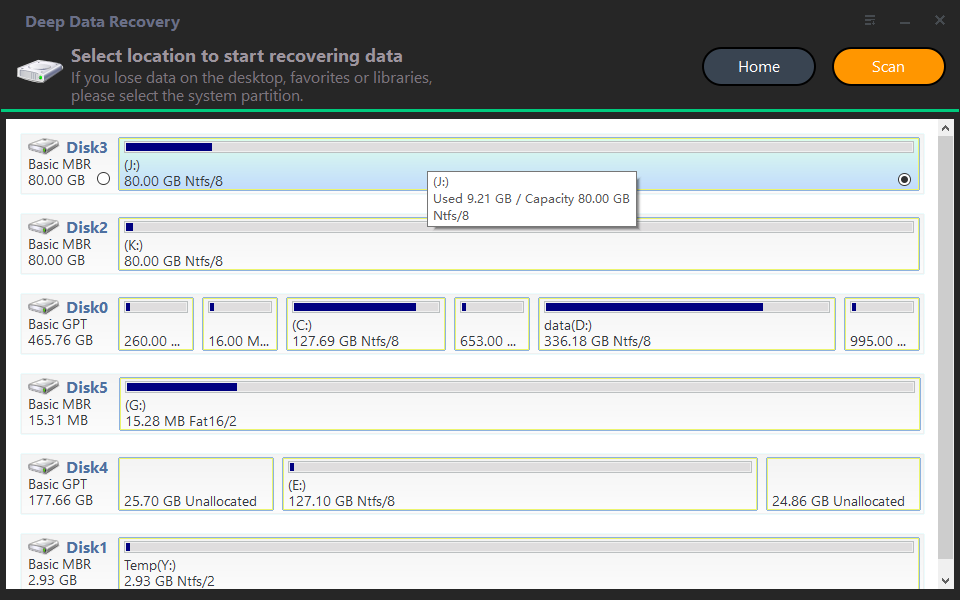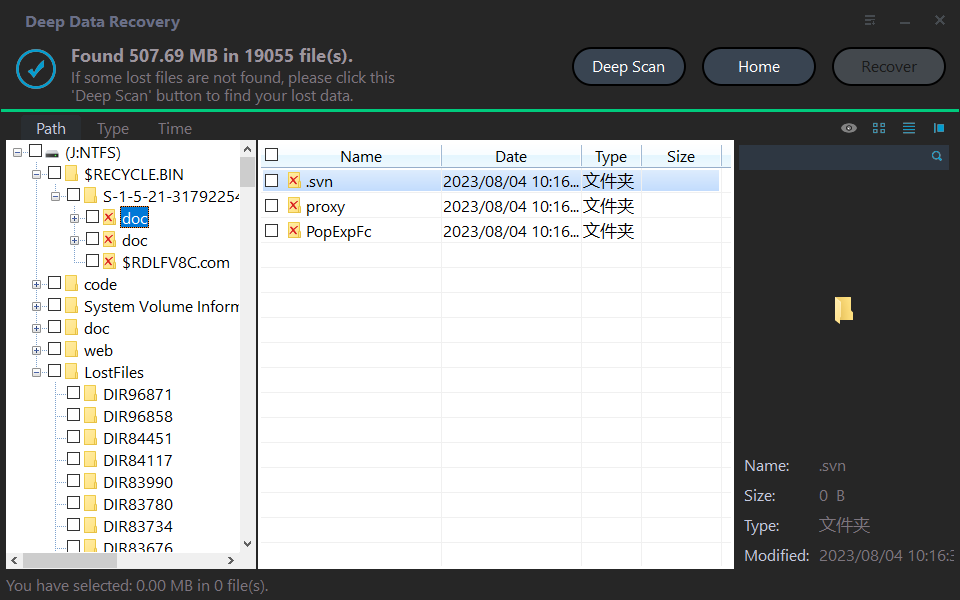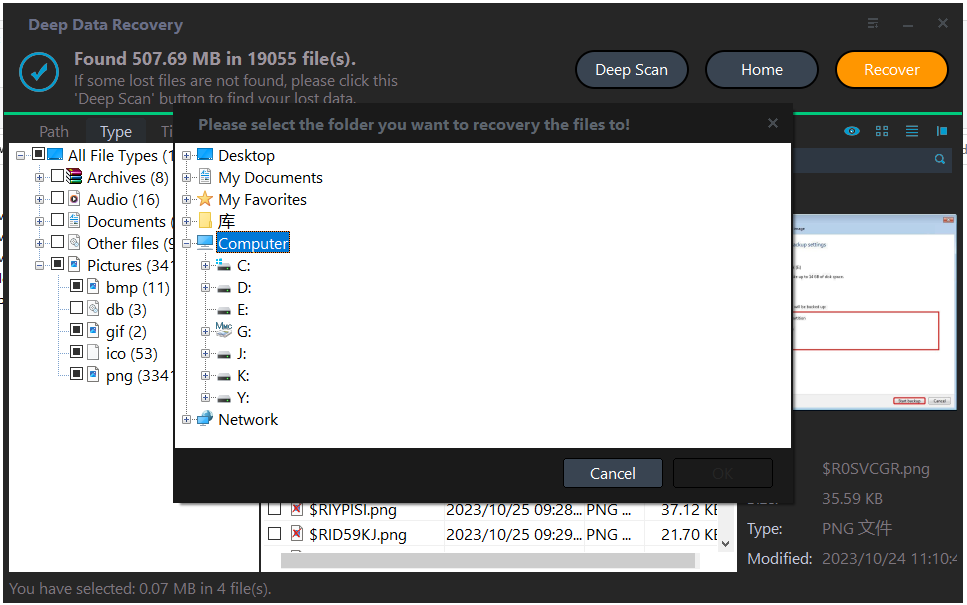Recover Data After Format: Complete in Seconds
- What happens during a format?
- Immediate steps after formatting
- How to recover data after format using data recovery software?
- FAQs about data recovery after format
- 1. Is data recovery after format always successful?
- 2. How can I prevent data loss after format in the future?
- 3. Is it possible to recover data from a physically damaged drive?
- 4. Will data recovery void the device's warranty?
- Conclusion
What happens during a format?
Before starting the data recovery process, it's crucial to understand what occurs when a storage device is formatted. When you format a drive, whether it's a hard disk, SSD, USB drive, or memory card, the file system on the device is reinitialized. This erases the file index, making the data inaccessible to the operating system.
However, the actual data remains on the storage medium until new data overwrites it. But most users don't notice it before, so they feel perplexed and distressed about the data loss due to formatting, especially if there are no backups available.
Can data be recovered after formatting? The answer is positive. It's important not to panic and take immediate action to increase the chances of successful data recovery.
Immediate steps after formatting
As soon as you realize that you've accidentally formatted your storage device, take the following steps to maximize data recovery chances:
Step 1. Stop writing new data
To prevent overwriting the lost data, immediately stop writing any new information to the formatted drive.
Step 2. Disconnect the drive
If it's an external drive or a memory card, disconnect it from the computer to prevent further damage.
How to recover data after format using data recovery software?
If you want to recover data after format, the best way is to use a professional data recovery software tool. There are numerous data recovery software available that can aid in retrieving your lost files. These tools work by scanning the formatted drive and attempting to reconstruct the original file structure.
Among all the software on the market, I highly recommend Qiling FastRecovery due to its user-friendly interface, robust recovery capabilities, and comprehensive disk partition management functions.
✦ Compatibility with various storage devices: This software is purposefully designed to handle the intricacies of HDDs, SSDs, and USB drives. It extends support to a wide array of USB makes and models, ensuring seamless compatibility regardless of drive specifications.
✦ Advanced recovery algorithms: Qiling FastRecovery utilizes advanced algorithms to locate and recover lost files from USB flash drives, even in challenging scenarios. Through thorough scanning, it identifies recoverable data fragments and adeptly pieces them together for successful file recovery.
✦ Data security: The software operates in read-only mode, prioritizing the security of recovered files and minimizing the risk of further data loss or corruption. It diligently preserves the integrity of the USB flash drive, preventing any modifications during the recovery process.
✦ Additional features: In addition to data recovery, Qiling FastRecovery offers an extensive set of features to cater to all your disk management needs. It facilitates partition recovery on the USB flash drive, partitioning of USB drives, wiping USB drives, cloning USB drives, creating bootable USB drives, and more.
Here's a step-by-step guide on how to recover data from formatted hard disk in Windows 10 using Qiling FastRecovery:
Step 1. Install and launch Qiling FastRecovery. Choose the exact partition or disk where your data lost and click Scan.
Step 2. Then, the recovery tool start to scan and search. lt will execute the "Quickly Scan" first for finding your deleted data fast, and then execute the "Deep Scan" for searching other lost data.
Step 3. Once the scan is completed, all deleted files, recycle bins and Raw files will be displayed. Please select the file you would like to recover and then click "Recover".
Step 4. Then, select a folder path to save your recovered files.
Step 5. Wait patiently for this process of recovering ends.
FAQs about data recovery after format
1. Is data recovery after format always successful?
Data recovery success depends on various factors, including the extent of overwriting and the condition of the storage medium. In some cases, complete recovery may not be possible.
2. How can I prevent data loss after format in the future?
Regularly backup your data on an external drive or cloud storage to prevent data loss in case of accidental formatting.
3. Is it possible to recover data from a physically damaged drive?
Data recovery from physically damaged drives is challenging and may require professional assistance.
4. Will data recovery void the device's warranty?
Generally, data recovery does not void the warranty of the storage device. However, it's best to check the manufacturer's policies to be sure.
Conclusion
Data loss due to formatting can be a distressing experience, but with the right knowledge and tools, it is possible to recover data after format. Remember to act quickly, stop writing new data to the formatted drive, and use reliable data recovery software. Additionally, adopting a proactive approach to clone the hard drive as a data backup will protect you from potential data disasters in the future.



